Job interview: Expectations of the employers and fears of the applicants
The job interview is one of the most important phases of the hiring process. It provides the employer with the opportunity not only to assess the applicant's professional skills and experience but also to understand their personal qualities, values, and ability to fit into the company's culture.

During the conversation, the HR manager aims to find out several important aspects such as: how competent the applicant is in their field, what motivates them to work for this particular company, what their personal qualities are, how they fit into the company's culture, and how they handle challenges.
Create a professional resume and increase your chances of success! Use our job application templates for documents that will not leave any employer indifferent. Start by selecting a template 📄.
In this article, I want to explain to you in detail what exactly the employer expects from you as a potential candidate for the job interview and how you can prepare to meet these expectations.
Contents
- The Most Common Fears
- What Information Does the Applicant Expect During the Job Interview?
- The 5 Most Important Phases of the Job Interview: what to expect and what to pay attention to
- Behavior During the Job Interview
- Typical Job Interview Questions
- After the Job Interview: Steps to take to increase your chances of success after the interview
The Most Common Fears
Many applicants are afraid of a job interview. One of the biggest fears is the possibility of being asked a question to which they are not prepared to answer. This could be a technical question or a request for a specific example from the past, which unsettles the applicant. Another common fear is receiving a negative evaluation of past experiences. Applicants fear that the employer might critically view their career gaps or frequent job changes, which could diminish their chances for the position. Also, not meeting the job requirements is a cause for concern as job seekers fear that their skills and experiences may not fully meet the employer's expectations.
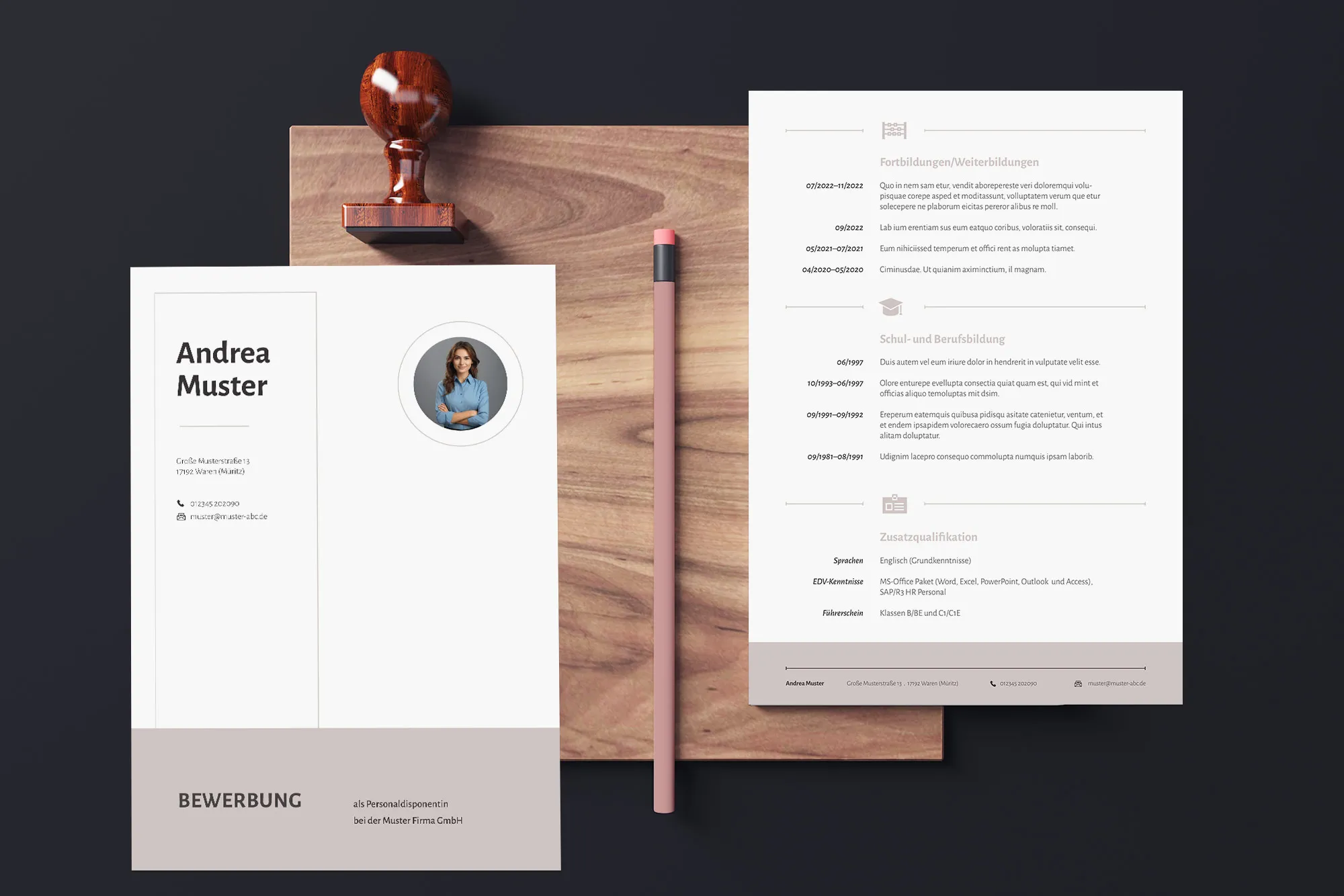
In 2023, the Federal Employment Agency conducted a study on how applicants prepare for job interviews. It revealed that job seekers often do not know how to answer questions about their weaknesses. They fear that an honest answer could be used against them. The fear of competing with other applicants is a major source of stress, especially when it is known that there are many qualified candidates for the position. Personal topics such as questions about marital status or future plans also cause fears as applicants do not want their private life to influence the employer's decision. A general lack of confidence due to inadequate preparation or previous negative experiences with interviews can significantly affect behavior during the interview. This leads applicants to mistakenly believe that they will not impress the employer and will not get the desired position, resulting in feelings of disappointment and failure.
Accelerate your path to success with our job application templates! A professionally designed resume can be the key to getting the job you desire. Start now and choose the template that suits you. View templates 📄.
To overcome these fears and help you prepare for the job interview, I will tell you exactly what the HR managers expect from you and how you should behave to leave a good impression during your interview.
What Information Does the Applicant Expect During the Job Interview?
The professional conducting the job interview seeks to obtain comprehensive information about the applicant to understand their potential and suitability for the company. The main aspects of interest to the employer usually include competence, trustworthiness, teamwork, and the value that the applicant can bring to the company.
Competence
In 95% of cases, the HR manager wants to ensure that you, as the applicant, possess all the necessary skills and knowledge to perform the tasks of the position. This includes technical skills, expertise, and experience in the respective industry. When answering their questions, you should demonstrate your competence by discussing past projects, successes, and tasks you have successfully completed. It is also important to show that you are capable of learning and developing professionally, as employers value employees who can quickly adapt to new technologies and work methods.
Team Spirit
The employer also wants to know how the applicant works in a team and interacts with colleagues. Team spirit is a key aspect for successful work in most companies. It is important that you demonstrate a high level of cooperation, communication skills, and conflict resolution. You should talk about your successes in teamwork and provide concrete examples of how you have contributed to achieving common goals, effectively communicated with colleagues, and maintained a positive work environment. This also includes being willing to help others, share knowledge, and participate in team projects. Cultural fit with the company is crucial and often more important than technical skills, as these can be taught. Those who do not fit socially or culturally will not be able to learn it either.
Additional Value
A human resources manager wants to understand what additional value you as an applicant can bring to the company. This means they are looking for employees who can increase revenue, save resources, or bring other benefits. You should prepare a list of accomplishments that demonstrate your ability to create additional value. This can include successful projects that have led to higher profits, process optimizations that have reduced costs, or innovative ideas that have improved productivity. It is important to present concrete results that show how your contribution can positively impact the company.
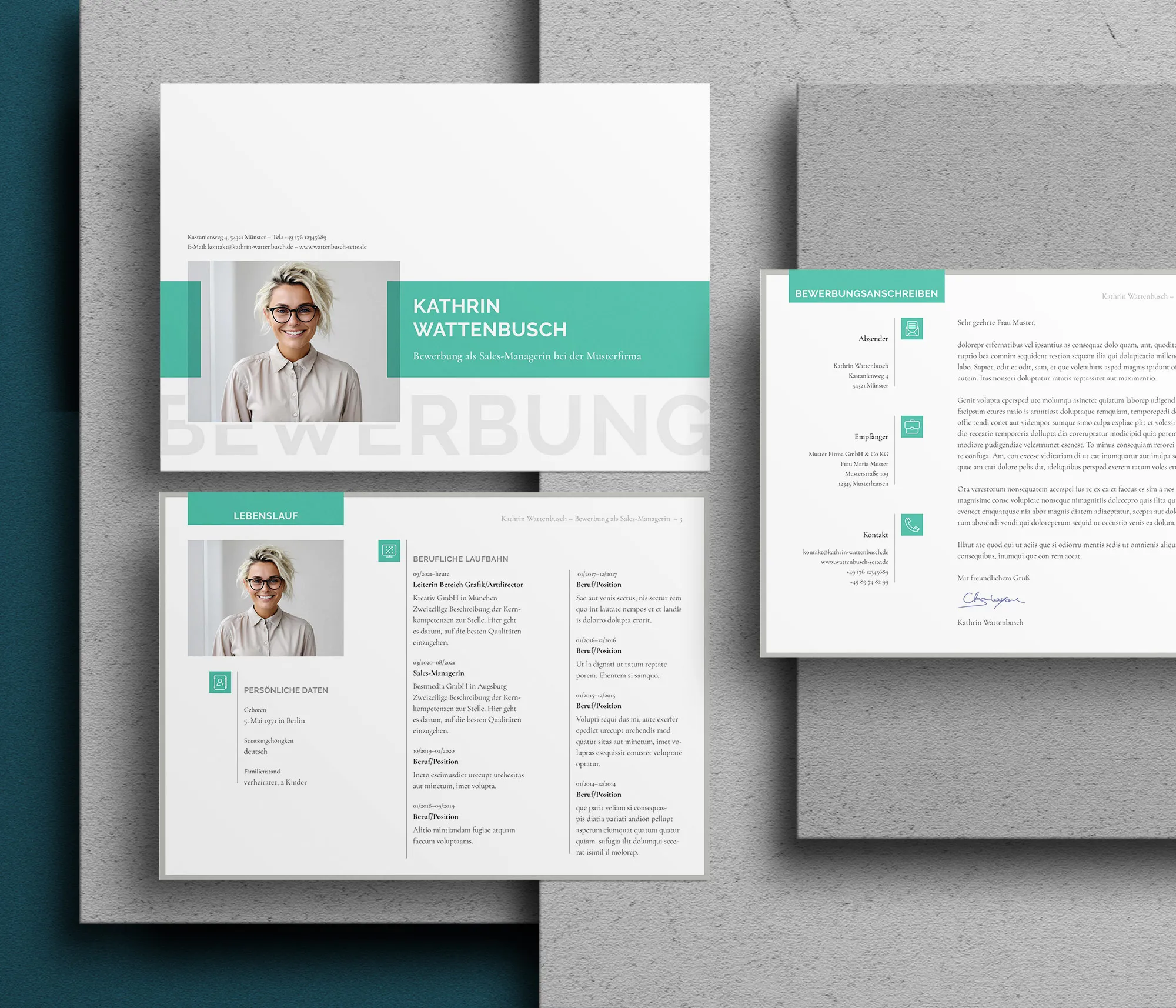
The 5 Most Important Phases of the Job Interview: what to expect and what to pay attention to
Preparing for the job interview includes understanding its phases and knowing how to convince the interviewer in each phase. Each part has its own characteristics and requires different approaches to leave a positive impression. We take a look at the five most important phases of the job interview and provide tips on how to navigate them correctly to present your skills, experience, and potential as effectively as possible.
1. Small Talk
The first phase of the interview lasts up to 5 minutes. It is important for the first impression and includes some key points that you should pay special attention to.
Entering the Room Where the Interview Will Take Place
Be confident and calm. Make sure your clothing looks neat and professional. Knock on the door if it is closed, and wait for an invitation to enter. When you enter, keep your head up and maintain a natural posture. Remember that it is important to make eye contact with the interviewer from the very first moment.
Short Greeting
After entering the room, greet the interviewer with a friendly smile. Say "Good afternoon" or "Good morning" depending on the time of day. The greeting should be clear and confident, showing that you are self-assured and ready to engage in conversation.
Introducing Yourself with Name
After the greeting, introduce yourself with your name. For example: "Good afternoon, I am Alex Schmidt". Providing your full name gives a more professional impression. If the interviewer has not introduced themselves, politely ask for their name: "How may I address you?" This shows your politeness and interest in establishing contact.
Questions from the Human Resources Manager
At the beginning of the conversation, the human resources manager may ask a few informal questions to lighten the atmosphere - but also to see if you can easily engage in a conversation with someone. These could be, for example:
How did you get here? You can respond as follows: I found my way here directly, thanks for asking. Your office is very conveniently located.
How are you? Possible responses: I'm feeling great, thank you. I hope you are doing well too.
You may be offered coffee, tea, water, or other drinks. My recommendation: always take a hot drink, like coffee or tea. This gives you time, as out of politeness, the interview will last at least until the coffee is finished. And often the interviewers will also have a coffee. Studies have shown that someone finds you more likable if they themselves have held or drunk a hot drink. The warmth of the drink reflects onto you. Sounds strange, but it has actually been proven in scientific studies in job interview simulations.
Stay overall polite and friendly and respond calmly and naturally. This way you leave a positive first impression and set the conversation partner in a positive mood.
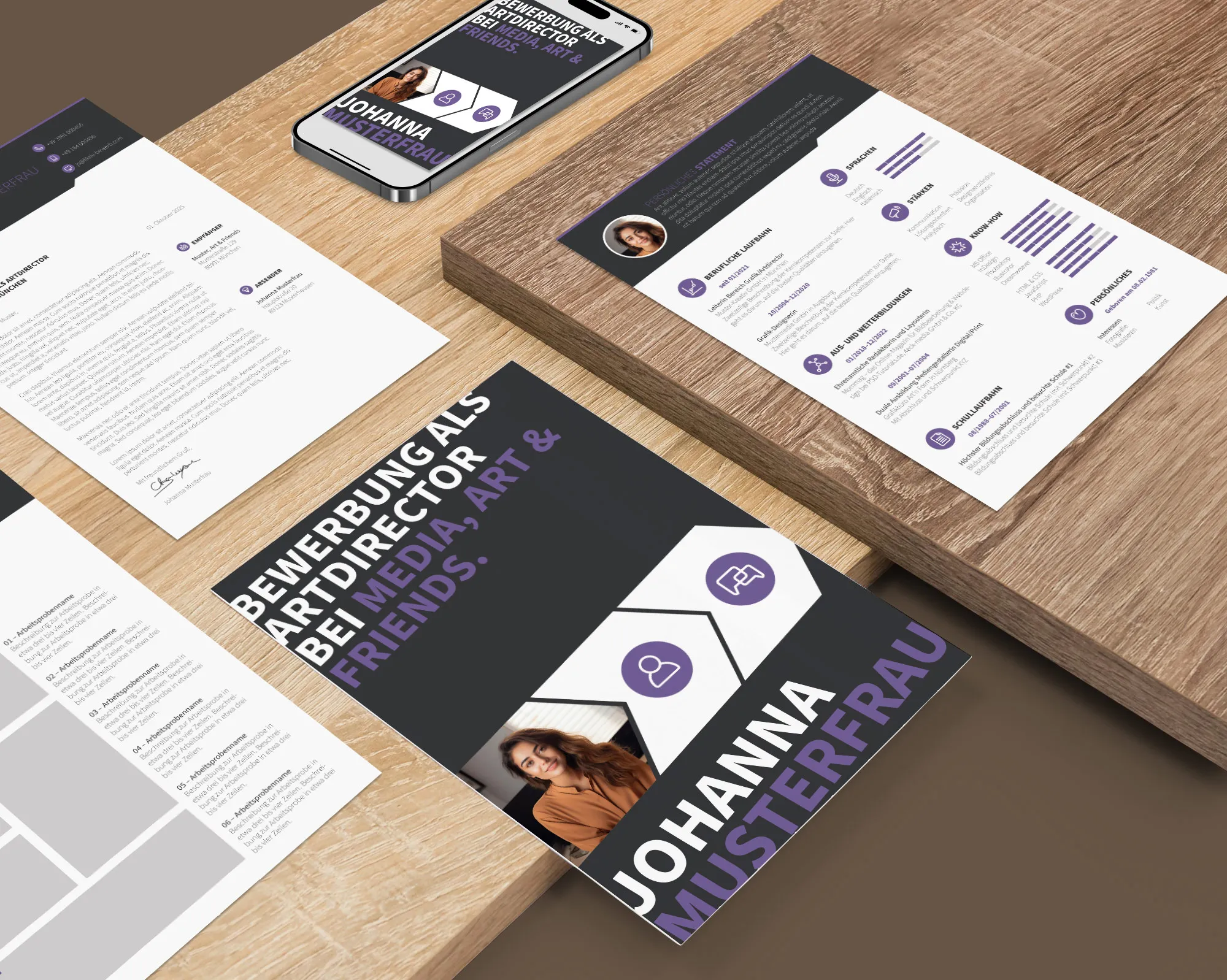
2. Introduction
After the initial formalities, the next step is to introduce the employer, briefly familiarize the applicant with the company, its culture, and its products, and describe the position and responsibilities. This may take between 5 and 10 minutes.
Introduction of the Employer
The company representative who will conduct the interview introduces themselves briefly. This could be a human resources manager, an HR manager, a potential manager, or the CEO. Typically, the conversation partner will briefly talk about their role in the company and possibly their experience.
How should you behave? Listen attentively, maintain eye contact, and show interest. You can nod your head slightly to indicate that you are listening. Remember the details, pay attention to the name and title of the conversation partner, as this may be useful in a later conversation. Thank the conversation partner for the introduction and for taking the time.
Brief Description of the Company, Its Culture, and Its Products or Services
The employer will most likely tell you about the company, its mission, values, corporate culture, and its key products and services. This will help you understand the environment in which you will enter and what the company does. Show interest, actively listen, and ask clarifying questions if you don't understand something. If possible, take notes on the key points to refer back to later in the conversation. Highlight your interest in the company and its products by saying, for example: I am very impressed by your sustainability strategy.
Description of the Position and Responsibilities
The conversation partner will describe the position you are applying for in detail, including the main responsibilities, tasks, and expectations of the candidate. This may also include a description of the work environment, the team you will be working with, and the performance indicators.
Focus on the details the conversation partner describes and show your interest through your body language. During the conversation, relate your past experiences and skills to the requirements of the position. For example: This position requires project management skills, which align with my previous experience as a project manager.
Ask constructive questions. This shows that you are interested in the position and understand it. For example: What are the main goals for the first six months in this position? or Are there opportunities for professional development in this position? It is important to demonstrate confidence, professionalism, and genuine interest in the company and the position during the conversation. This way you leave a positive impression and show that you not only fit technically but also culturally into the role.
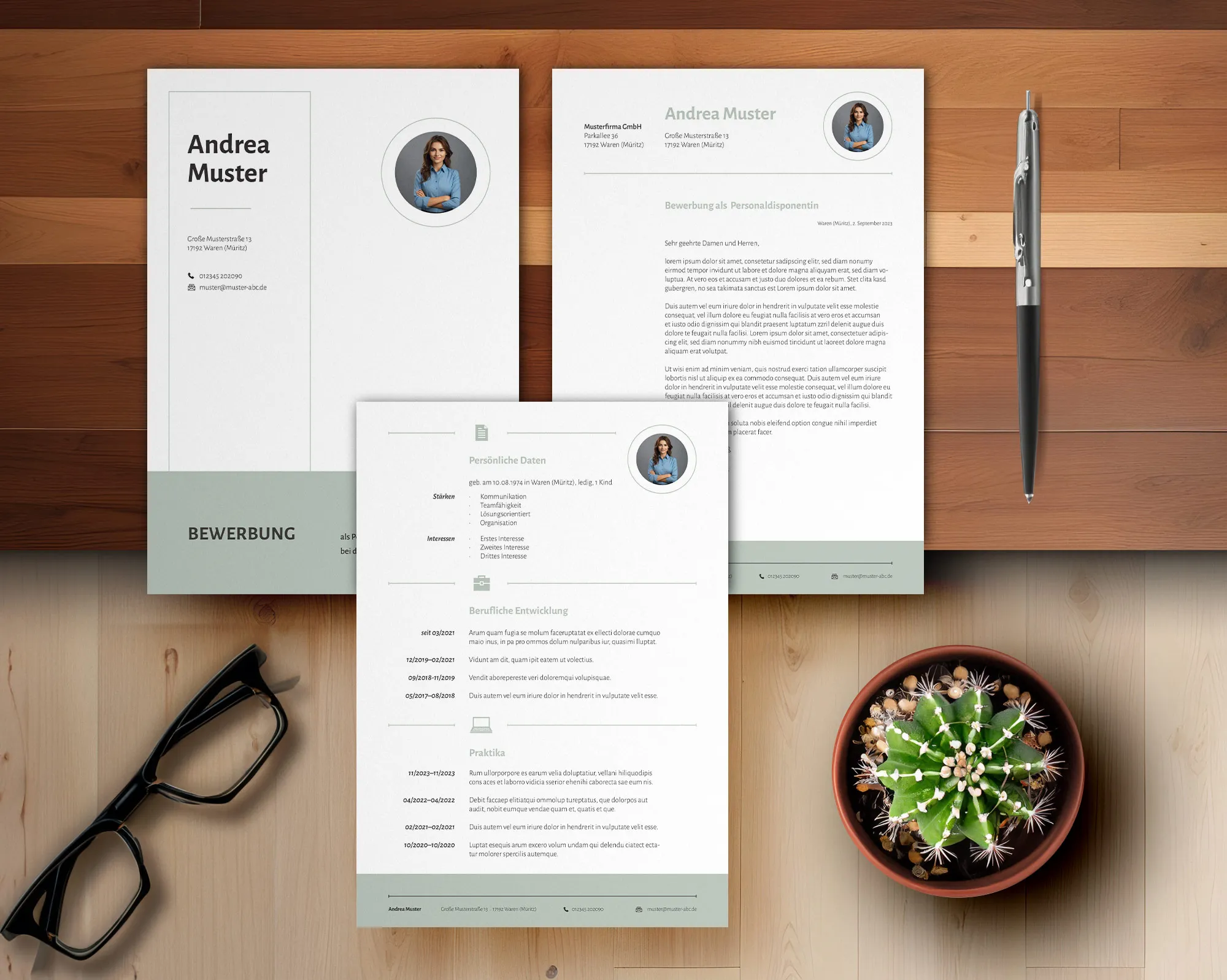
3. Self-Presentation
In the self-presentation phase of the job interview, you have the opportunity to present your work experience, achievements, and strengths related to the position in 5-10 minutes. Here are some tips on how to present yourself in a structured way.
Previous Professional Background
Start with a brief overview of your professional background. Mention the key positions you have held, the companies you have worked for, and the duration of your time in each position. Explain how your career has progressed and what key qualifications you have gained in each position.
For example: I started my career at XYZ as a Junior Analyst, where I worked for two years. Then I moved to ABC Corp. as a Senior Analyst, where I worked for four years. In the last three years, I have been working at DEF Inc. as Head of Analytics.
Achievements
After your career overview, move on to your achievements. Highlight the specific results you achieved in your previous positions. Use numbers and concrete examples to demonstrate your effectiveness.
For example: As a Senior Analyst at ABC Corp, I successfully led a project to optimize processes, reducing costs by 15%. At DEF Inc., the team under my leadership increased forecast accuracy by 20%, positively impacting the company's strategic planning.
Strengths Relevant to the Position
Conclude your self-presentation by describing your strengths that are relevant to the position you are applying for. Explain how these strengths will help you successfully fulfill the responsibilities of your new role.
An example of a strength description: One of my main strengths is analytical thinking. I am able to quickly analyze large amounts of data and find the best solutions. Additionally, I have excellent communication skills that help me collaborate effectively with my team and other departments. My project management skills enable me to successfully execute complex tasks in a short amount of time.
Always conclude your self-presentation with an optimistic look towards the future, emphasizing your motivation and readiness for new challenges. This leaves a positive impression and highlights your willingness to become a valuable member of the team.
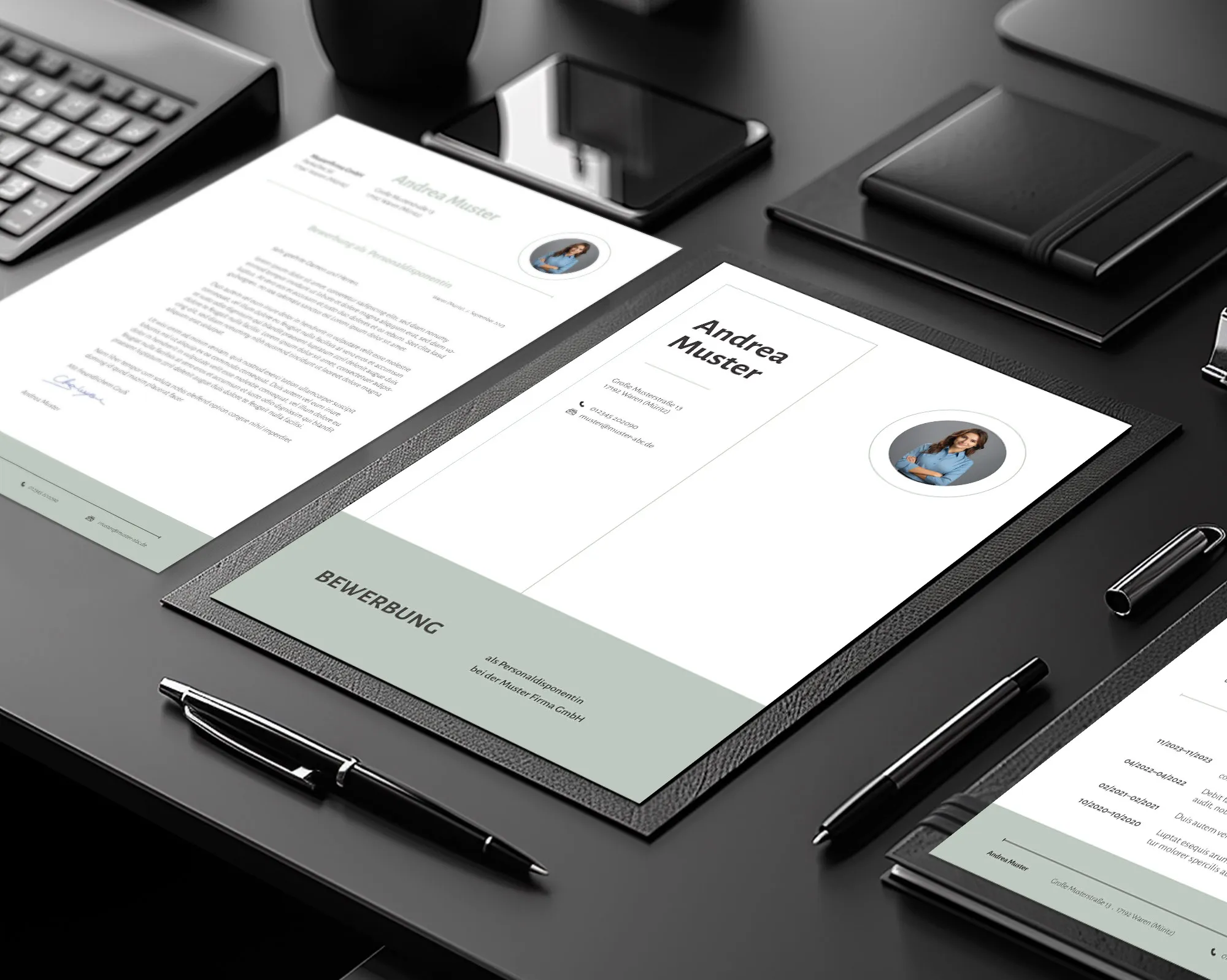
4. Questions
When a hiring manager gives you the opportunity to ask questions, it's a good chance to show your interest and gather important information about the company and the position. The questions should be categorized in advance as follows:
Questions about the content and requirements of the position
These questions help you better understand the main tasks and expectations of the position you are applying for. They demonstrate to the hiring manager that you are interested in the specifics of the position and are willing to take on certain responsibilities.
Example: Can you tell us more about the main tasks of this position? What will be the priority tasks in the first three months? What skills and qualities do you consider particularly important for success in this position?
Questions about expectations and performance measurement
By answering these questions, you will learn how the company evaluates its employees' performance. They show the hiring manager that you are results-oriented and striving to meet the company's expectations.
Examples: What performance indicators are used to measure performance in this position? What are the expectations for performance in the first year of the position?
Questions about development opportunities
Demonstrate your desire to develop and grow with the company. They show the hiring manager that you are interested in long-term collaboration and committed to professional growth.
Examples: What professional development and training opportunities does the company offer? Does the company have programs for leadership development or internal promotion?
Why ask these questions?
Questions about the content and requirements of the position help clarify what is expected of you in this position. This way, you can better prepare for your tasks and avoid misunderstandings.
Questions about expectations and performance measurement show that you take your job seriously and want to understand how you can be successful in the company. This helps you set clear goals and understand the criteria by which your work will be evaluated.
Questions about development opportunities show that you want to continue to grow and improve. This is important for employers because they are interested in employees who are committed to developing and contributing to the long-term success of the company.
In this way, these questions not only help you get the necessary information but also convey a positive impression of your interest and motivation to work for the company.
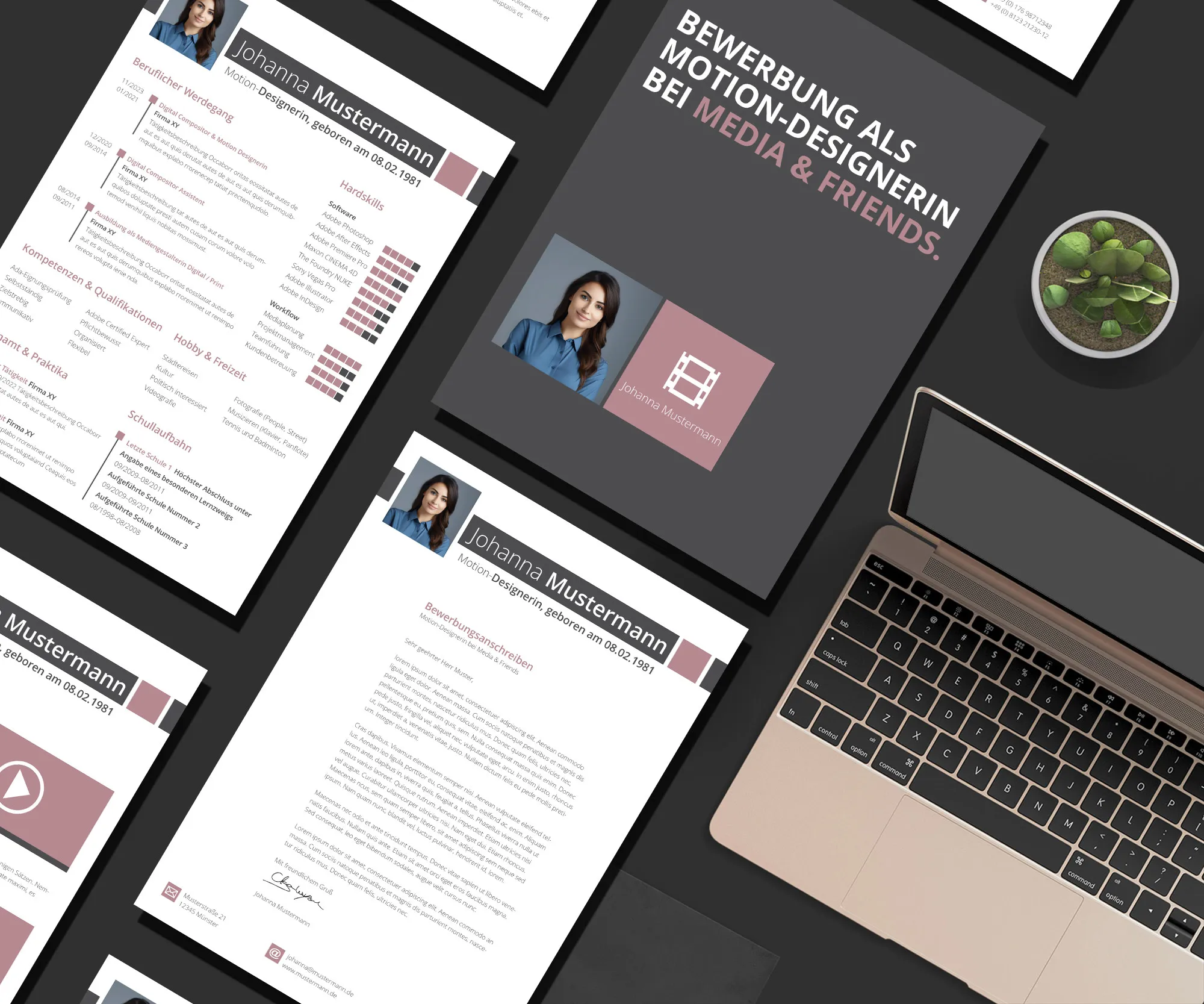
5. Closing the Job Interview
Concluding the interview is the last impression you leave. So don't mess it up. The closing phase lasts up to 5 minutes. It includes a proper thank you for the interview, clarification of the next steps and deadlines, and the farewell. Here's how you should behave during this phase to leave a positive impression:
The Right Thank You for the Interview
Once the main part of the interview is over, it's important to thank your interviewer for their time and the opportunity to discuss the position. This shows your appreciation and respect for the process.
Example: Thank you for the opportunity to discuss this position with you. I appreciate your time and the detailed information about the company and the position.
Next Steps and Timeline
It is important to clarify the next steps in the hiring process and the timeline for the decision. This way, you'll know when to expect a response and what actions you need to take in the future.
Example: Can you tell me what the next steps in the hiring process will be? When can we expect to hear from you?
Farewell at the Job Interview
Be polite and professional. Thank your interviewer once again and say goodbye with eye contact and a gentle smile.
An example of a closing statement: Thank you once again for your attention and the opportunity to participate in this interview. I look forward to hearing from you. I wish you a great day!
A Detailed Example of Ending a Job Interview
- Thank you for the opportunity to discuss this position with you. I appreciate your time and the detailed information about the company and the position. This conversation has further strengthened my desire to work for your company.
- Can you tell me what the next steps in the hiring process will look like? When can I expect feedback? I would like to know when the decision will be made so I can start working immediately.
- Thank you once again for your attention and the opportunity to participate in this conversation. I look forward to hearing from you. If you have any further questions or need additional information, please do not hesitate to let me know. I wish you a great day!
Afterwards, stand up, shake hands with the interviewer, make eye contact, and smile. This way, you leave a positive impression and show your confidence and professionalism.
The above-described action algorithm is a commonly used template. If you understand its key aspects, you will be well-prepared even if your job interview involves more steps or is much shorter.
Behavior During the Job Interview
To leave a positive impression during a job interview, it's not only about what you say but also about how you behave. Your nonverbal communication - your eyes, facial expression, tone of voice, body language, and posture - play a crucial role in the impression you make as an applicant. Here's how you should behave to leave a positive impression:
- Eye Contact: Maintain eye contact with your interviewer. This shows your interest and confidence. Avoid looking down or to the side, but also do not stare intensely. Try to avoid constantly looking around the room or shifting your gaze frequently. This could indicate nervousness or inattention.
- Facial Expression: Start and end the conversation with a genuine smile. A smile creates a warm and friendly impression. Keep your face open and friendly. Avoid appearing too serious or indifferent. React with your facial expressions to the conversation - show interest when listening and confidence when speaking.
- Tone of Voice: Speak clearly and confidently. Avoid speaking too high or too low. A gentle and calm voice shows your confidence. The speed of your speech should be moderate. Speaking too quickly can seem nervous, while too slowly can appear uncertain or lethargic.
- Body Language: Use open gestures to emphasize your words. Place your hands on the table or in your lap and avoid crossing them. This shows your openness and willingness to communicate. Remember that gestures should be natural and not exaggerated. Avoid unnecessary movements that could look like nervous tics.
- Posture: Sit or stand upright but relaxed. An upright posture demonstrates confidence and professionalism. Assume a position where you appear natural and comfortable. This way, you avoid tension and discomfort.
- Politeness and Mindfulness: Be polite and attentive to your interviewer. Keep the conversation going, listen attentively, and do not interrupt.
- Punctuality: Be punctual for the job interview. Delays can give the impression of unprofessionalism and lack of discipline.
- Clothing: Wear appropriate clothing that aligns with the company's dress code. It should be neat and clean.
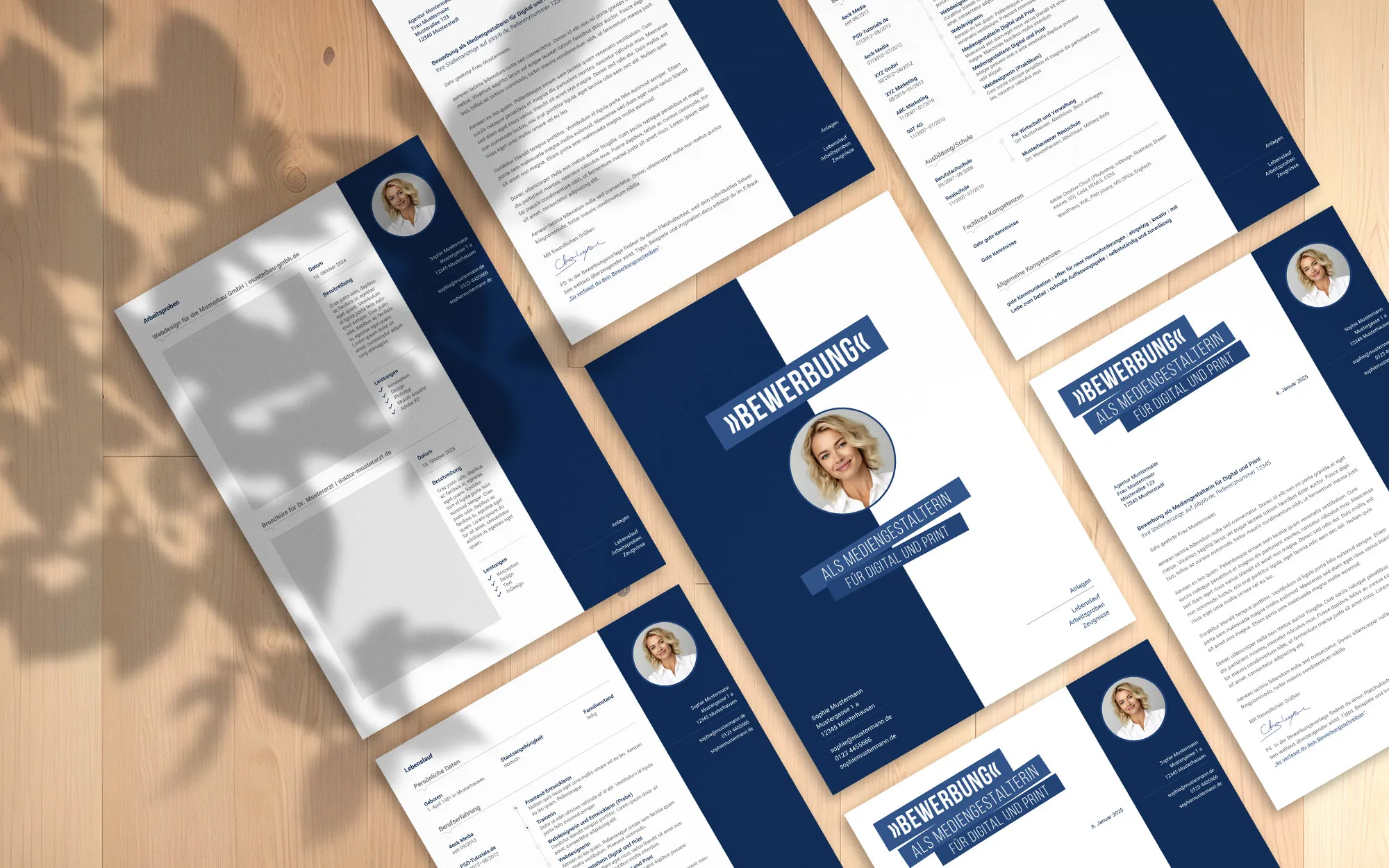
Typical Job Interview Questions
During a job interview, employers try to learn as much as possible about a potential candidate to assess their suitability for the position and the company. For this purpose, they use different types of questions that aim to uncover not only the professional qualifications but also personal traits, motivation, and behavioral aspects. The most common questions can be categorized into several groups: Standard, Personality, Motivation and Goals, Professional, Behavior, and Expectations. Each of these categories has its own significance and helps the employer to form a complete picture of the candidate.
Standard Questions Asked in Job Interviews
These are basic and general questions asked to obtain fundamental information about the candidate and their professional background. They often include questions about work experience, education, skills, and significant achievements. They are asked to understand the candidate's overall qualifications and to determine how they align with the main requirements of the position.
Tell us about yourself. Why do you want to work in our company?
To answer these questions, prepare a brief but informative overview of your professional background. Highlight key achievements and experiences that are relevant to the position. Research the company to clearly show why you are interested in it.
Common Personality Questions Asked in Job Interviews
The personality questions in job interviews help the employer understand your personal traits, values, and work style. They help assess whether you are a good team player and fit well with the company culture.
What are your strengths and weaknesses? How do you handle stress?
Analyze your personal qualities and prepare examples to support your strengths. Be honest about your weaknesses and how you are working to improve them. Prepare specific examples where you demonstrate effective handling of stressful situations. Learn more about how to address questions about strengths and weaknesses in a job interview.
Questions about Your Motivation
With questions about motivation in job interviews, the interviewer can find out what motivates you and what your career goals are. They help assess whether your ambitions align with the company's skills and direction.
Where do you see yourself in five years? What motivates you in your work?
Before going to the job interview, think about your long-term career goals and how this position can help you achieve them. Identify the key factors that motivate you and link them to the opportunities the company provides.
Professional Questions Commonly Asked in Job Interviews
These questions relate to the specific knowledge and skills required to perform the tasks of the position. They help assess your professional competence.
Tell us about your experiences with [specific technology/process]. How do you typically approach technical problems?
Review your professional resume and prepare examples that demonstrate your knowledge and skills. Be prepared to talk about specific projects and tasks you have undertaken, and highlight your role and achievements.
Teamwork Questions
With teamwork questions, the goal is to assess how you react to different situations, how you can solve problems, and how well you can work in a team. They are asked to understand how you have behaved in the past and how you could behave in the future.
Tell us about a situation where you had to resolve a conflict in a team. How did you handle difficult projects?
Use the STAR method (Situation, Task, Action, Result) for structured answers.
Prepare examples from your past that demonstrate how you resolved conflicts and mastered difficult tasks.
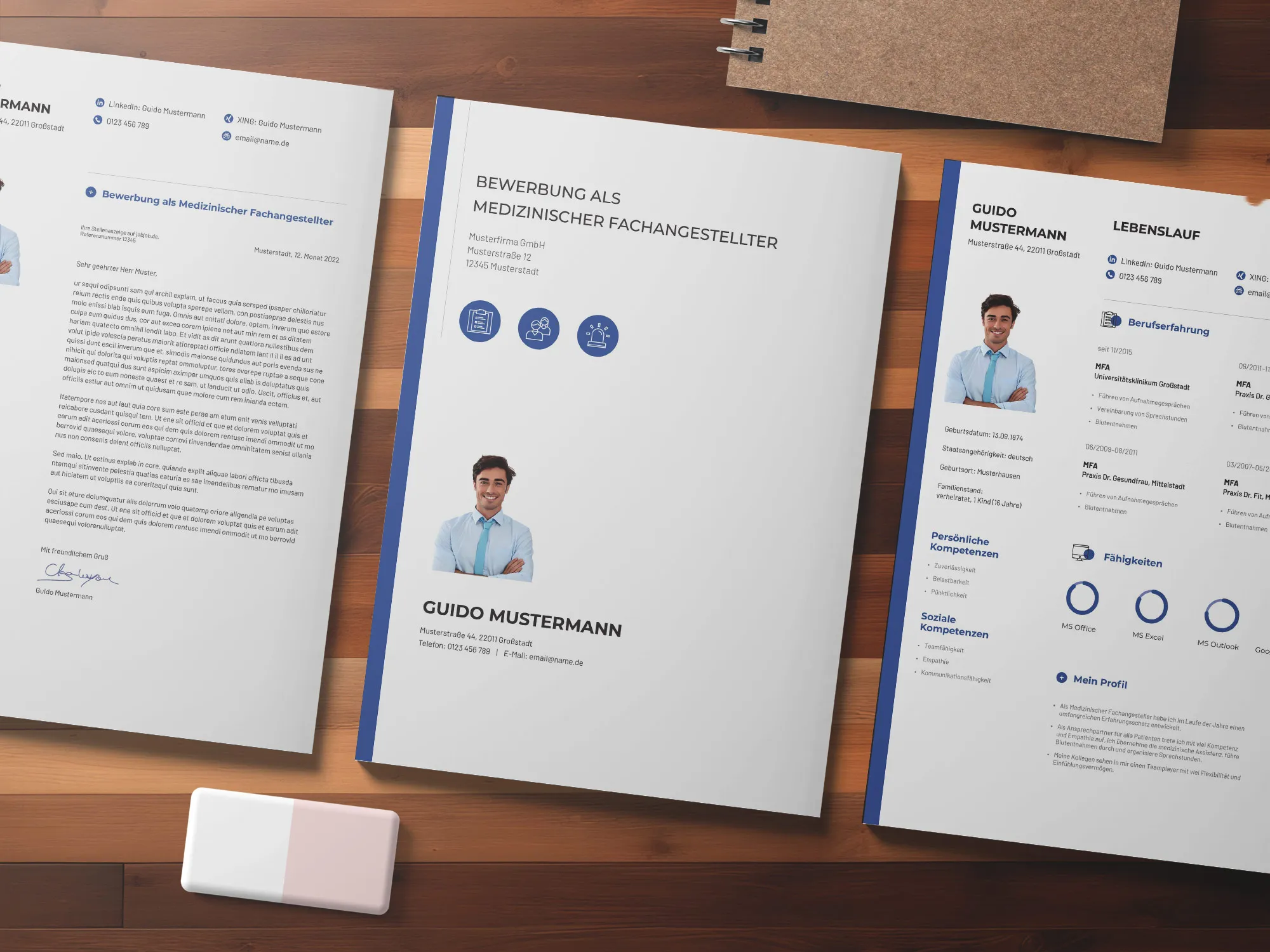
Questions about Expectations
Questions about expectations in a job interview help the HR managers understand your professional and personal expectations regarding work in the company. This allows companies to assess whether your expectations align with the company's opportunities.
What are your expectations for the work environment? Which leadership style suits you best?
State your main expectations for the workplace, such as working conditions, corporate culture, and leadership style. Prepare to explain why these expectations are important for your performance and job satisfaction.
The answers to these questions enable the employer to get a comprehensive picture of you as an applicant and help determine if you are well suited for the position and the company as a whole. Your preparation will decide whether you can win over the interviewer.
After the Job Interview: Steps to take to increase your chances of success after the interview
There are some additional steps you can take after the job interview to significantly increase your chances of getting the desired position. Here is a brief description of the possible steps.
Sending a Thank-You Note
Send a thank-you note to your interviewer no later than one day after the interview. This is a respectful email thanking them for their time and the opportunity to meet and reaffirming your desire to work in the company. By doing so, you demonstrate that you are polite and interested in the position. Few applicants do it, but those who do have a positive impact.
An example of a thank-you note:
Dear Mr. (Interviewer's Name),
Thank you very much for the opportunity to discuss the open position for (Job Title) in your company. It was a pleasure to learn more about your team and projects. I am very interested in this position and am confident that my skills and experiences will be of great value to your company. I look forward to receiving your feedback.
Best regards
(Your Name)
Preparing Additional Materials
If additional documents or materials (e.g., portfolio, references, or work samples) were mentioned during the job interview, send them as soon as possible. By doing so, you show that you are organized and ready to collaborate.
An example of a cover letter for such documents:
Dear Mr. (Interviewer's Name),
As we discussed during the interview, I am sending you my portfolio/recommendations/work samples. I hope they will assist you in making your decision. If you have any further questions, please let me know.
Best regards
(Your Name)
Staying in Touch
One week after the job interview, you can send a polite email to inquire about the status of your application. By doing so, you demonstrate your interest and remind the interviewer of your presence.
Sample letter:
Dear Mr. (Interviewer's Name),
I hope you are well. May I kindly ask about the status of my application for the position of (Job Title). If you need any further information, please do not hesitate to contact me. I am very interested in the opportunity to work in your team and look forward to hearing from you.
Best regards
(Your Name)
Analysing the Job Interview
After the job interview, it is helpful to conduct a self-analysis. Remember which questions were challenging for you and which aspects of your experience were particularly interesting to the interviewer. This way, you can better prepare for future interviews and improve your self-presentation skills.
Improve your skills
If it turns out during the job interview that you lack certain skills or knowledge, you should work on improving them. This could include online courses, seminars or workshops. If you receive a job offer, it shows the employer that you are willing to further develop yourself.
Look for additional opportunities
Continue actively searching for other positions, even if you think your interview was successful. This helps you maintain a positive attitude and avoid disappointments in case of a negative response.
After the interview, don't just sit around. Send a thank you note, prepare additional documents, stay in touch with the interviewer, analyze your mistakes, and improve your skills. These actions will help you leave a positive impression and significantly increase your chances of getting the desired job.
From Vitalii Shynakov
